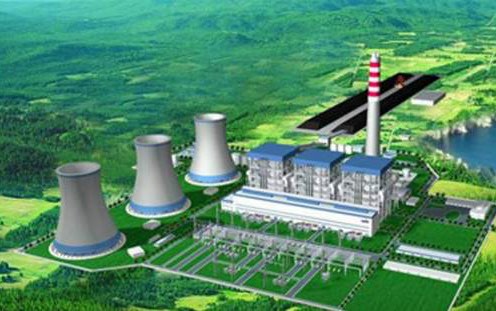Climate change is already upon us. Proliferating and intensifying natural disasters, soaring numbers of endangered species, the melting Arctic and the expanding Sahara are all signs that global mitigation strategies are urgently needed to stave off further environmental damage and human suffering.
Some of the measures needed to mitigate climate change present a conundrum, however. Conventional wisdom tells us that the poorer countries that will suffer the most from climate change will also be the ones to suffer the most from climate change mitigation. According to this thinking, mitigating the damage from climate change by restricting the use of fossil fuels would harm developing countries disproportionately, because their economies would not be able to adapt to global economic shifts driven by mitigation and would be unfairly hampered by restrictions on their use of the fossil fuels that powered economic growth in rich countries for 200 years.
The question, then, is how to structure climate mitigation strategies so that they do not stall growth and development in the places that need it most.
The good news is that new research I conducted with colleagues at the MIT Joint Program on the Science and Policy of Global Change shows that climate change mitigation will not necessarily hamper economic growth in poorer countries. In fact, our findings indicate that if poorer countries were exempted for a period of time from having to curb emissions, not only would climate change still be constrained, but most poorer countries would be likely to reap net economic benefits. Perhaps even more importantly, low-income countries would see these benefits not in the distant future, but within the next 30 years.
Our research models the economic impact of climate mitigation on three poorer countries in southern Africa—Mozambique, Malawi, and Zambia. We project how these economies would grow between now and 2050 under a scenario in which greenhouse gas emissions and climate change continued unabated, versus a scenario in which rich countries reduced their carbon emissions to hold global temperature increases to about 2 degrees Celsius.
We find that relatively modest efforts to cut emissions could increase the average GDP of Malawi, Mozambique and Zambia by between 2% and 6% vs. what they could expect in the absence of global efforts to control rising temperatures.
Mitigation efforts create two avenues of economic benefit for the three countries. First, in the long term, they lower the deleterious impacts of rapid climate change on economic activity. Most developing countries are in parts of the world that are expected to be hardest hit by climate change, and they are also the least able to adapt to new climatic conditions and more extreme weather. Reducing this expected damage generates meaningful economic benefits before 2050, but becomes even more important for developing countries after 2050, when the effects of climate change are expected to get much worse.
More significantly in the shorter run, credible restrictions on carbon emissions would cause oil prices to drop, generating an economic windfall for oil importers like Mozambique, Malawi, and Zambia. Successful mitigation requires reducing global oil consumption, lowering demand for oil and pushing down oil prices. If poorer countries are allowed a period of several years in which they are exempt from meeting emission-reduction targets (as our model assumes), the lower fuel prices could stimulate economic growth and development. Since nearly all low-income countries are net oil importers, these gains would be widespread.
Of course, not all developing countries would see lower oil prices as an economic boon—they could deliver a major hit to the GDP of oil exporters such as Angola and Nigeria. But few lower-income oil exporters have escaped the so-called resource curse; the extent to which oil wealth has been beneficial for the populations of these countries is seriously contested.
With nearly daily warnings from global bodies about the dire need to address climate change, it may seem counterintuitive to exempt some countries from a global effort to cut emissions. But low-income countries contribute very little to global carbon emissions. Allowing them to continue to use fossil fuels for set periods should neither hamper global mitigation efforts nor place an extra burden on rich countries.
Middle-income countries, however, could not be excluded from emissions reductions for long, as they are already very large contributors to total annual global emissions. The dual benefits of mitigation—a more stable climate and lower oil prices—will benefit most middle-income countries and help to ease the transition to a low emissions economy over the next 30 years.
Channing Arndt is Director of IFPRI’s Environment and Production Technology Division. This post first appeared in the Financial Times.
This research was conducted with support from the Towards Inclusive Economic Growth in Southern Africa (SA-TIED) program.







